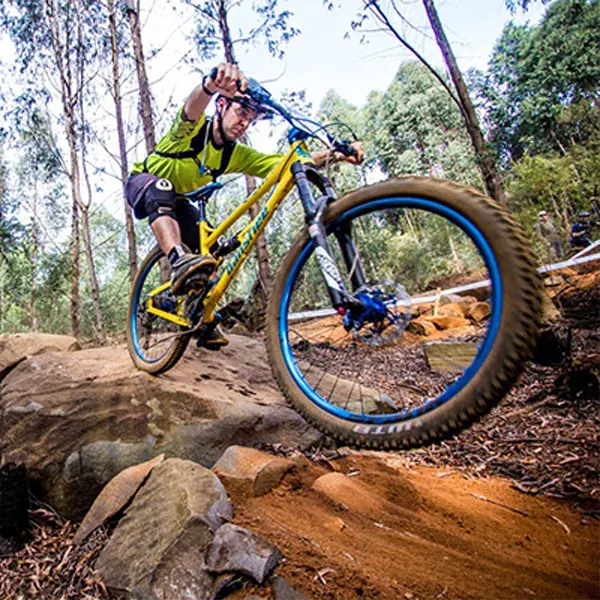Paying tribute to the bicycle as it grows tourism and takes us back to nature
As we celebrate World Bicycle Day on 03 June, Sappi salutes this humble, yet inspirational mode of transport, which helps to bring to life some rural economies through tourism and recreational activities. Following a particularly difficult year where people have faced the restrictions and isolation of lockdown, the trails on Sappi’s property which are used for cycling and trail running, have provided much needed economic support for surrounding communities, but also as important outlets for people to partake in healthy outdoor exercise and safe social activity.
Sappi Southern Africa’s commitment to build trails in its forests came naturally and dovetails seamlessly with its 2030 Sustainable Development Goals (SDGs) targets. The Sappi’s Trail Programme – which has resulted in partnerships with trail custodians including the Karkloof Country Club, Nelson Mandela Capture Site Trails and Cathkin Trails Club in KwaZulu-Natal and Mankele Mountain Biking and Tranquilitas in Mpumalanga – align neatly with one of the SDGs prioritised by Sappi, being SDG 15 – Life on Land. Through focusing on this SDG, we aim to promote the sustainable use of our ecosystems, along with our commitment to preserving biodiversity which we do by leaving 30% of our landholdings unplanted and by managing seven nature reserves and 160 Important Conservation Areas, to name but some of the measures being taken. (Read more about these interventions here and at https://www.sappi.com/managing-for-biodiversity).
Through partnerships and collaboration, Sappi’s trails have become a safer and more enjoyable option for riders, runners or walkers. Bicycles are a positive symbol of sustainability signaling harmony between responsible production and consumption, people and the planet.
This aligns to Sappi’s business strategy and form’s part of the company’s commitment to the circular economy. So besides providing access to our land for people to enjoy the benefits of how we balance the one third of our unplanted landholdings that are preserved for biodiversity, we also work with our trail partners to ensure that the trail networks result in broad based economic beneficiation supporting SDG8 -– which aims to provide decent work and economic growth in the communities surrounding our forests.
In certain areas such as the Karkloof where the trails are now visited by more than 7,000 riders each year and where the annual Sappi Karkloof Trail Festival draws approximately 1,500 entrants, an economic impact study by KZN Tourism indicated that the annual projected income in the Karkloof area was approximately R234million.
In addition to Karkloof, Sappi also provides land access to other trail events such as the Sani2C – one of the world’s largest and most successful mountain biking stage races – which KZN Tourism estimates generates more than R50-million per annum for the region.
Projects such as the Karkloof Adventure Tourism Incubator (ATI) and the formation of Nguni Trails which helps build and maintain the more than 250km of trails in the Karkloof are further positive outcomes. A well-functioning trail team leads to better trails, which draw more visitors who support the local tourism economy including visiting tourism attractions such as the Karkloof Crane Conservation Centre and Hides, yet another proud legacy project in which Sappi has been involved, and which harbours all three of Southern Africa’s crane species.
These factors, along with the strong partnership between Sappi and the Karkloof Country Club have resulted in the Karkloof Trails being ranked number one in the TREAD Top 20 Trails of 2020; no small feat in a country where mountain biking has become the new golf. A comparison of the day visitor figures at the Karkloof Club for February 2020 (225) vs. those for February 2021 (751) highlights the substantial increase in visitor numbers to this top trail destination and shows how the popularity of cycling is on the increase. Happy World Bicycle Day!
Check out this short video here:






